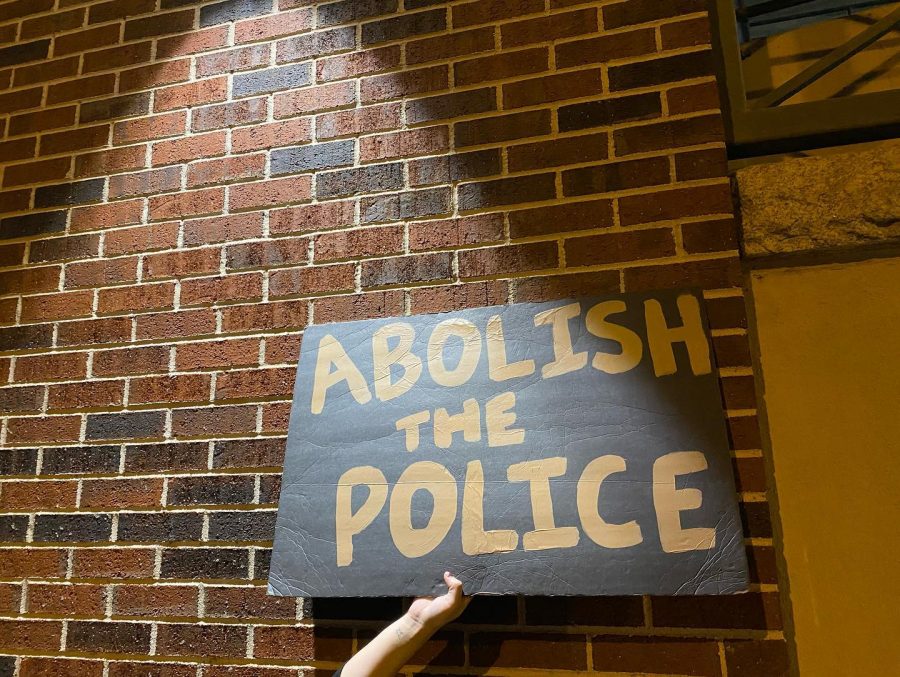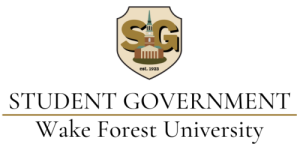Triad Abolition Project promotes anti-racism
The locally based organization has been at the forefront of discourse on Winston-Salem criminal justice reform
According to their website, the Triad Abolition Project “maintains the vision to abolish the carceral state.” Their work in criminal justice reform focuses on dismantling racism.
March 11, 2021
Throughout the past year, discussion of an abolitionist versus reformist mindset has become mainstream. There has been nationwide discourse on criminal justice system abolition that stemmed from the murder of George Floyd in May 2020, though the conversation about the abolition of law enforcement has been around since long before Floyd’s death.
Winston-Salem is home to the Triad Abolition Project, which, according to their website, is an organization that “maintains the vision to abolish the carceral state.”
Nia Sadler, an organizer of the Triad Abolition Project, described abolition as “dismantling, existing in community and dreaming. It’s also accountability. Abolition is difficult yet creative work. In dismantling institutional and systemic oppression, we have to create other ways to support communities that do not involve law enforcement and prioritize care-based initiatives.”
Sadler referenced care-based initiatives, or initiatives that put the community first, because caring for one another as community members is essential to the framework of the Triad Abolition Project.
“Law enforcement cannot be reformed. We cannot reform a system that was created to protect property and not people,” Sadler said. “We need an understanding that the system of policing harms everyone, but especially and disproportionately Black, Brown, Indigenous and Queer/Trans folks. We understand that folks feel safe when they feel loved, cared for and that their needs are met. Keeping people alive and living, not just surviving, is the driving force. This work is intersectional and multi-dimensional.”
Sadler noted that people of color and other minority groups are harmed by this system at a much higher rate than those who are not part of those communities, and that the Triad Abolition Project seeks to abolish the systems that cause and participate in this oppression.
When asked about new initiatives that the Triad Abolition Project has taken on, Sadler described the Forsyth County Police Accountability and Reallocation Coalition (FCPARC), which is a coalition of five local organizations that share similar demands for local government.
Sadler also noted the importance of acting on a local level when dealing with government-related issues.
“We understand the implementation of these demands are initiated at city, county and the state level,” Sadler said. “These are long-term demands and goals that are attainable because of the will of the people and [they will only occur] when local officials and stakeholders are willing to create meaningful and radical change.”
Sadler, when asked about how students can get involved with the initiatives of the Triad Abolition Project, encouraged students to allocate extra funds to the Forsyth County Community Bail Fund. Donation sites can be found on the Triad Abolition Project website. She also encouraged students to pay attention to what is going on in the community. This includes monitoring city council and county commissioner meetings and following FCPARC organizations on social media.
Sadler also promoted awareness of the housing crisis in Winston-Salem and Forsyth County.
“According to court records, there are up to 140 eviction hearings in a single day. Housing Justice Now conducts court watch for those facing eviction,” Sadler said. “HJN is on Instagram and Twitter, so definitely contact them on those platforms to see how you can participate.”
The Triad Abolition Project’s website lists many other ways to get involved, and states there is a great need for involvement in these community-centered causes. The organization believes there are a multitude of initiatives in the area that are in desperate need of help from people, and particularly from young people with resources.














